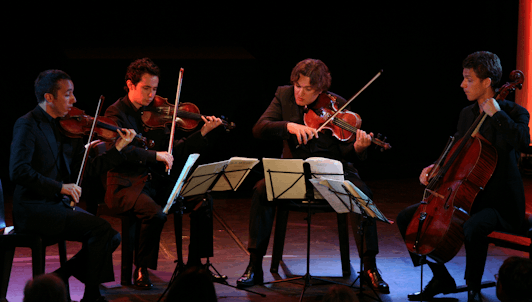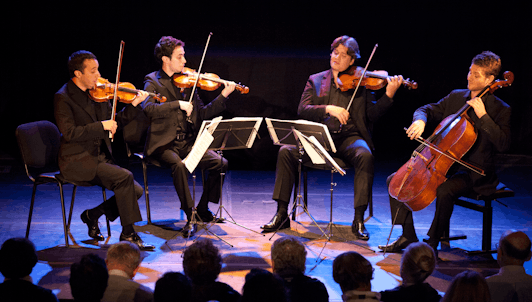The performance began with one of Haydn’s most popular works: the String Quartet in C Major, nicknamed “Emperor”, because of his contemporaneously composed imperial hymn, Gott erhalte Franz den Kaiser. Composed in 1797, the quartet displays the artistic maturity Haydn achieved during this period, and is perhaps the most symphonic of his 68 string quartets. Light yet majestic, the piece features a joyful dialogue between the instruments that uses contrapuntal effects to great advantage.
The Ébène Quartet then continues with the first of Mendelssohn’s seven published string quartets, the String Quartet No. 1 in A Minor, Op. 13. Composed in the fall of 1827 when the composer was just 18, the work is characterized by an intensity and lyricism that reflect the young Mendelssohn’s sadness at the death of his idol Beethoven the previous spring.
Photo: © Nicolas Brodard


